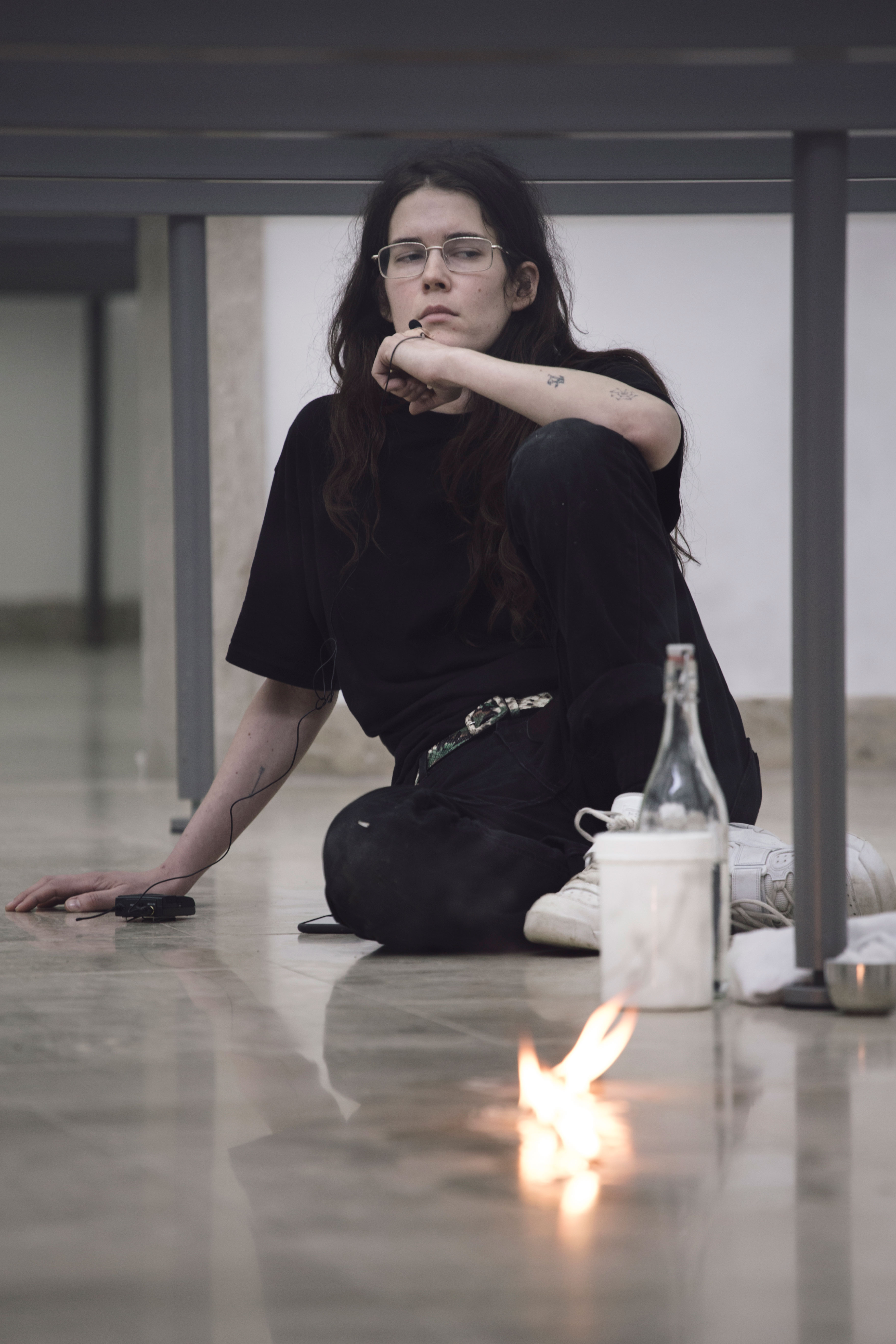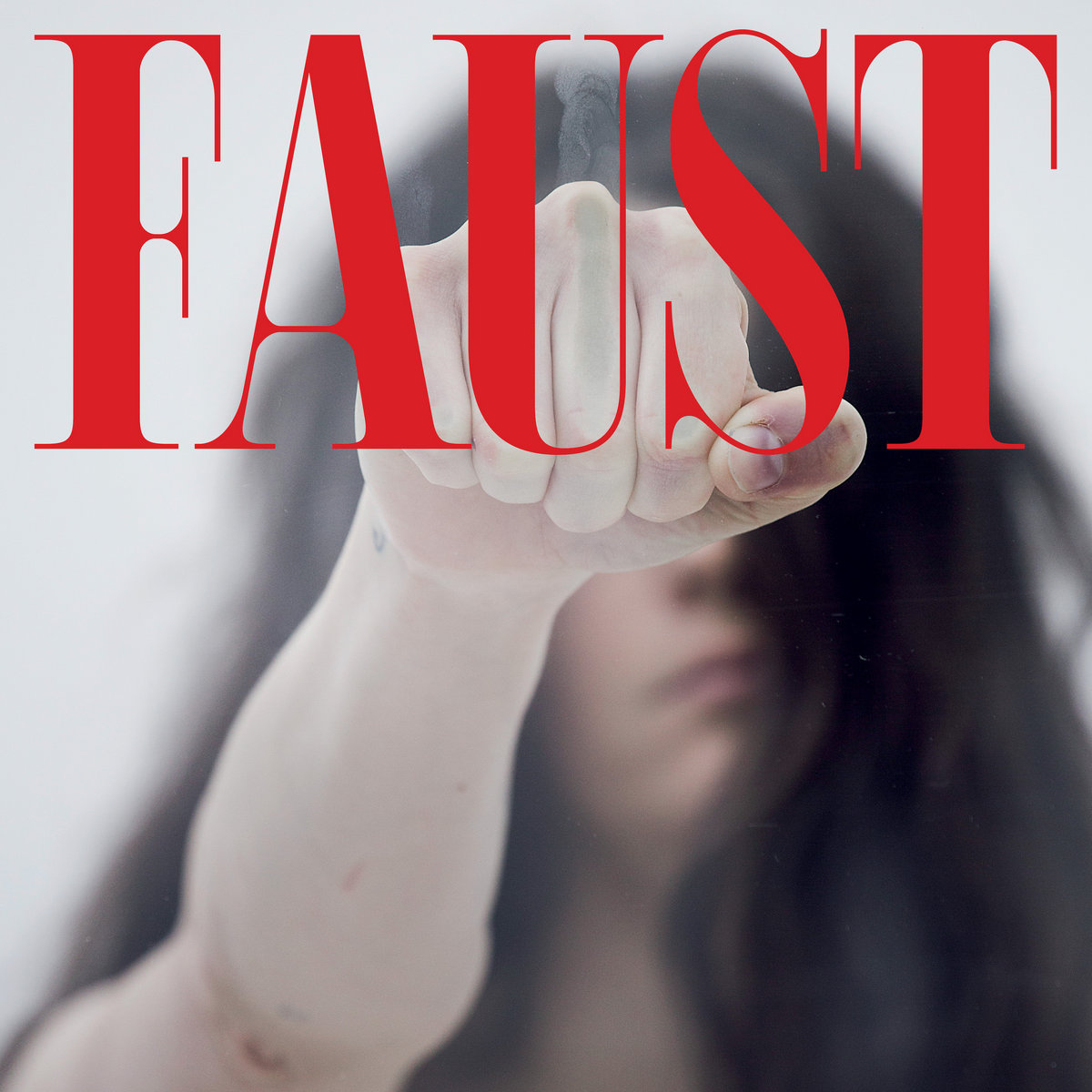

“The music which Billy Bultheel composed for Faust, which includes sections written by Eliza Douglas and Anne Imhof, took shape in relation to Oliver Messiaen’s Quatuor pour la fin du temps of 1940/41, which was composed and first performed in a German prisoner of war camp. Messiaen, a conservative Catholic, based his piece on the Revelations of St. John’s, the Apocalypse, the last and only prophetic book in the New Testament. Allen S. Weiss writes of Messiaen as the mimic of a boundless synesthesia; according to him it is “the entire natural context that is at stake in each work.” Messiaen does not compose about the prophetic, he composes the prophetic. He divided the Quatuor pour la fin du temps into eight movements, the quasi-liturgical structure of which returns in Faust. The prophetic element of this Catholicism remains, but in Faust the motifs get stuck in loops. They are distributed in space, over loudspeakers, and as samples on the mobile phones of the performers; they recur, they put each other out of tune. One imagines to have once again recognised the theme, yet the instrumentation constantly shifts and thus widens the difference between motifs. As was already the case in Angst, it is the songs and choruses, individuations and communa- lisations that ceremonially unite and repulse. And always tear away, too Time does not end; it loops.”
From Aquarium Transformer – Kerstin Stakemeier.

